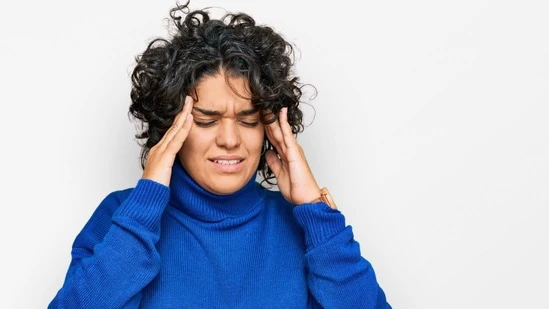Migraines are no longer confined to the middle age – it has started hitting people in their early 20s and 30s as well. In an interview with HT Lifestyle, Dr Keni Ravish Rajiv, senior consultant, neurology and head of Epilepsy Services said, “Millennials, especially in their late 20s and 30s, are experiencing migraines more frequently, and with severe impact on quality of life.” How to get rid of migraine headaches fast? Doctors share comprehensive guide to migraine aura, triggers, best treatments
Dr Keni Ravish Rajiv shared the triggers of migraines in young adults:
1. Stress overload
Stress is a primary trigger for over 70% of millennials with migraines. Work deadlines, financial insecurities, and hustle culture elevate cortisol levels, creating a vicious cycle of tension and pain.
2. Digital strain
7 to 9 hours are spent on screens every day by millennials. Young adults, mainly aged 18-34, who spent more than 6 hours of screen time a day had a 30% greater risk of migraines. In addition to screens and screen time in general, posture-related issues, exposure to blue-light, and disruptions to circadian rhythms associated with screens only make matters worse.
3. Unhealthy sleep patterns
Irregular sleep doubles the likelihood of migraine onset. Night shifts, binge-watching, and social media scrolling push millennials into chronic sleep deprivation.
 4. Diet and stimulants
4. Diet and stimulants
High caffeine intake, skipped meals, and processed foods are common triggers. There’s a direct link between energy drinks and increased migraine episodes among young IT professionals.
5. The migraines’ role in quality of life
The duration of migraine can range from 4-72 hours or longer and the pain may progress to throbbing type pain and may also have associated with nausea, photophobia, or phonophobia. The productivity loss for working millennials with migraine is roughly 3-5 days/month loss, days away from work, absences at work, health related anxiety.
Tips to manage migraine:
- Lifestyle management strategies: Reduce screen time, yoga/meditation, hydration, and regular sleeping cycles (sleep hygiene).
- Medical interventions: Aside from pain medications, preventive medications, vitamin B2/magnesium, Cognitive Behavioural Therapy (CBT) can help decrease recurrence.
- Awareness and early diagnosis: Consulting a neurologist allows for less pain associated with missed attacks.
Quick relief hacks for millennials with migraines
- Implement the 20-20-20 rule: after every 20 minutes of screen time, looking at something at least 20 feet away for at least 20 seconds.
- Keep a migraine diary to track any migraine triggers including sleep, diet, and stress.
- Limit caffeine intake to less than 200 mg per day (≈ 2 cups of coffee).
- Do breathing work/yoga to overcome the stress hormones. 4. Apply a cold compress to your forehead during your acute attacks.
